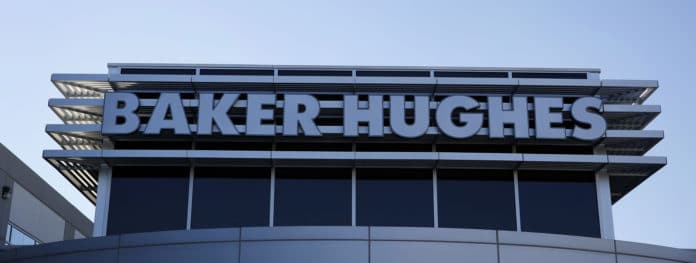Halliburton and Baker Hughes called off their $28 billion merger that faced stiff resistance from regulators in the United States and Europe over antitrust concerns.
A day after the merger was called off, Baker Hughes said Monday it will buy back shares and debt with the $3.5 billion break-up fee it’s due this week. The company also said it will cut costs as it focuses on new products for well drilling and production.
The second- and third-largest oil-service firms had set a deadline for the end of April to complete the deal or walk away. The Justice Department heard concerns from dozens of companies and ultimately concluded that the deal was “not fixable at all,” David Gelfand, deputy assistant attorney general, told reporters Monday on a conference call.
“While both companies expected the proposed merger to result in compelling benefits to shareholders, customers and other stakeholders, challenges in obtaining remaining regulatory approvals and general industry conditions that severely damaged deal economics led to the conclusion that termination is the best course of action,” Dave Lesar, Halliburton’s chairman, said in a statement.
Halliburton announced the Baker Hughes takeover in November 2014 in a bid to better compete against industry leader Schlumberger. The U.S. Justice Department filed a lawsuit in early April to stop the merger, saying it threatened to eliminate head-to-head competition in 23 products and services used in oil exploration. Shares of Halliburton and Baker Hughes have declined amid the worst oil slump in a generation, reducing the deal’s value from $34.6 billion when it was announced.
“The companies’ decision to abandon this transaction — which would have left many oilfield service markets in the hands of a duopoly — is a victory for the U.S. economy and for all Americans,” U.S. Attorney General Loretta E. Lynch said in a separate statement Sunday.
Halliburton offered to sell additional assets in February in an effort to appease antitrust concerns. That wasn’t enough to satisfy concerns because the assets being sold carried a high risk of becoming less competitive after they were divested, Gelfand said.
“If as a business person, you want to take an asset that you have and go dump it in a lake, that’s your prerogative,” Gelfand said. “If you’re going to go merge with your only competitor and take your competitive asset and dump it in a lake, we’re going to challenge it.”
Analysts voiced doubts about the deal getting done after Halliburton announced April 22 that it would delay its first-quarter earnings release to May 3 from April 25.
Houston-based Baker Hughes will buy back shares totaling $1.5 billion and debt totaling $1 billion, with proceeds of the breakup fee, the company said. It will also refinance its $2.5 billion credit facility, which expires in September. The company will focus on well construction, including drilling services, drill bits and completions, and production services, including artificial lift and production chemicals, Chief Executive Officer Martin Craighead said Monday in a statement.
“More than ever, our customers need to lower their costs and maximize production,” Craighead said in the statement.
Halliburton sold $7.5 billion in notes in November, which built up its cash reserve to a record of more than $10 billion — a stockpile that will help cover the $3.5 billion fee.
The price of West Texas Intermediate oil, the U.S. benchmark, has fallen by more than half since the middle of 2014 to about $45 a barrel. The oil business has responded by slashing more than $100 billion in spending and eliminating more than 250,000 jobs in what Schlumberger has called the worst financial crisis in the industry’s history.
A stand-alone Baker Hughes with $3.5 billion in cash from the breakup can rebuild its BJ Services business, cut costs and create a strong technology portfolio that could draw new suitors, J. David Anderson, an analyst at Barclays, wrote April 28 in a note to investors.
“We don’t buy the narrative that BHI will be a disaster if the merger with HAL doesn’t consummate,” Anderson wrote.
Baker Hughes fell 0.1 percent to $48.30 at 10:32 a.m. in New York. Halliburton rose 1.7 percent to $42.03.
—
Jim Polson and Ramsey Al-Rikabi contributed.






